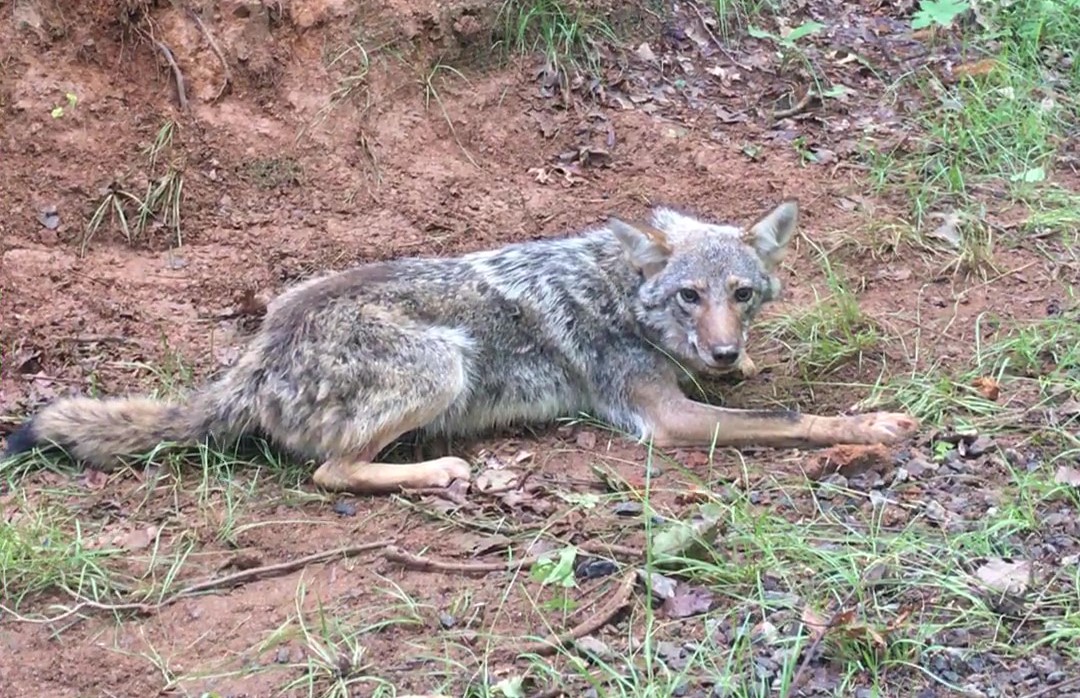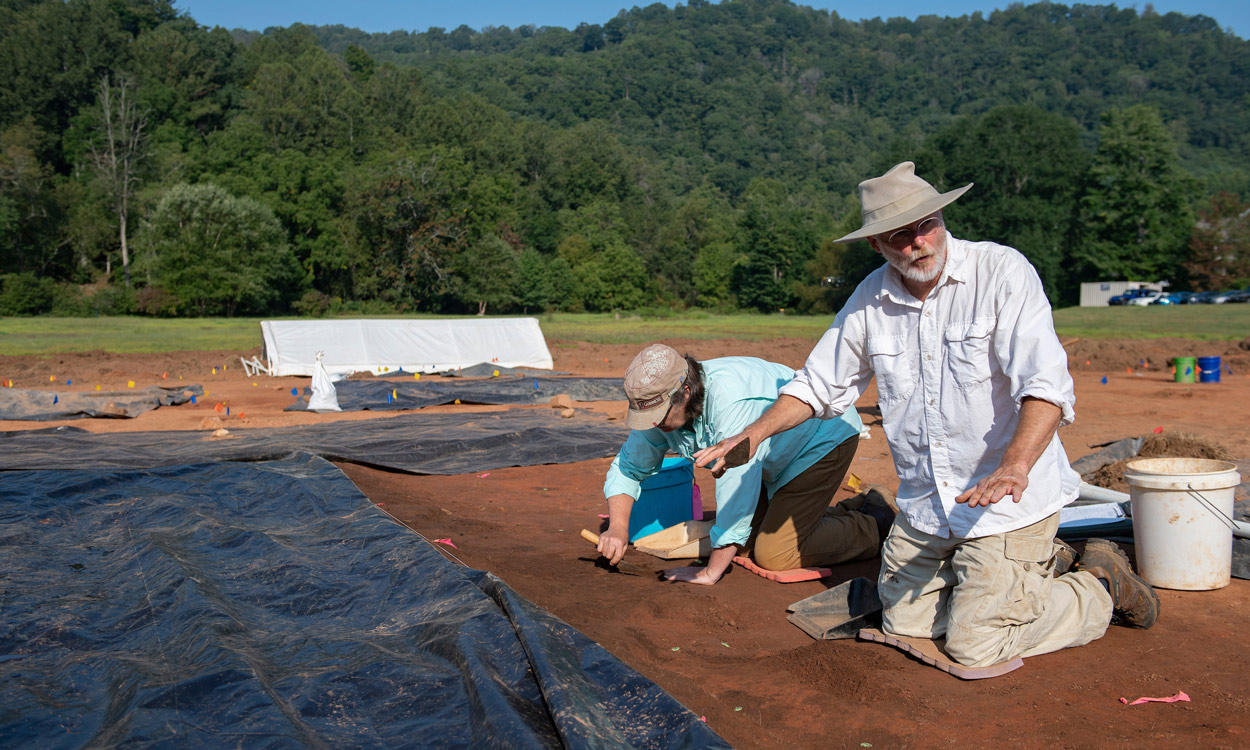Understanding Coyotes in Western North Carolina

Coyotes have called Western North Carolina home for about 30 years. They’re relatively new to the region compared to bobcats and foxes, who are established residents with hundreds of years of lineage. As the most adaptable predator in North America, the very presence of coyotes in an ecosystem can alter the abundance and distribution of smaller, subordinate carnivores and their prey.
Western Carolina University’s Aimee Rockhill, an assistant professor in the Department of Geosciences and Natural Resources, is examining the role coyotes play on ecosystem function in western North Carolina. To understand this dynamic, Rockhill and her team of researchers are using global positioning system (GPS) collars to determine habitat use and species interactions, as well as to locate and collect fecal matter for analysis of eating habits and disease prevalence.

Researcher Aimee Rockhill points to a tracking device in the field.
Coyotes and other predators in the landscape are often viewed through a negative filter, especially in urban and suburban communities where they might have a higher profile due to a perceived risk to property, domestic animals (pets), and personal safety. Rockhill’s work will expand current WCU research to support more effective community planning and wildlife management across the diverse and developing region.
For now, it appears that gray fox are more abundant in urban areas and becoming scarce in forested areas; whereas, red fox are thriving in suburban areas with early successional plant communities.
Get Involved
Alongside the Resolve Conservation organization, Rockhill and her team are trying to get a better understanding of how people in the region feel about the carnivores that might live in their backyards.
Further, they're looking for new locations to deploy their cameras and collars. If you're willing to fill out a survey about these animals and/or grant access to your property, visit the Appalachian Predator Project.
For more information on the project, watch the video by UNC-TV below:

